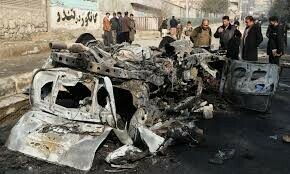Doctors continue to take freebies in Valley, price of medicine goes high
SRINAGAR,: Keeping the rules set by the Medical council of India at bay, the doctors in the Valley continue to take freebies worth lakhs of rupees to increase the sales of pharma companies.
When Press Trust of Kashmir contacted Dr Riyaz Ahmad Daga spokesperson DAK, he conveyed freebies ranges from a simple pen which most of the doctors accepts to a luxurious car which less than 0.001% doctor demands and that doesn’t mean to prescribe substandard medicines. Basically the margin of profit of medicine is quite high around 900%, so there is a race among the pharma companies to increase their sale. The manufacturing cost of most of the medicines is less than 10% of its Mrp.”Doctors love their patients more than their own parents”, he further added.
He added that implementation of drug policy in letter and spirit will result in get rid of freebies menace.
Making freely available of generic medicine in hospitals and in the market which is a part of drug policy will provide medicine at cheaper rates to the patients.
The misconception about generic drugs among the general public and few medicos that these drugs are less efficacious is a myth, but the generic drugs are same in composition, dosage, intended use, effects, side effects, route of administration, risks, safety, and strength as the original drug except marketing promotion which increases the price of medicine up-to 900%.
Meanwhile sources in the health department told Press Trust of Kashmir that cholesterol lowering generic drug Atorvastatin is believed to have nearly 150 brands. And the price ranges somewhere from Rs. 40 to Rs.150 for ten tablets of 10 mg each. Likewise, a gastritis drug Pantoprazole has about 250 or more brands and may vary in cost from something over Rs. 20 to about Rs. 100.
Another category of drugs that face tough competition is antibiotics. Cancer drugs and psychotropic drugs are others that require long-term use, bringing more brands and competition and price ranges.
However, it is a fact that not all medical practitioners take the gifts distributed by pharmaceutical companies. A chest specialist and a general medical practitioner in the city suburb said most of the doctors in rural areas went for affordable medicines. “We have to look at the patients in total. There might not be compliance to the prescription if the patient cannot afford the medicines,” one of them said.
A former Govt health service doctor while talking to Press Trust of Kashmir said that drugs for diabetes, hypertension and chronic renal diseases are the fast-moving drugs and in large volumes. “These drugs face the toughest competition in the market because of the large varieties available, and a doctor can be a big help in pushing up the sale of a favourite one,” he said.
Another category of drugs that face tough competition is antibiotics. Cancer drugs and psychotropic drugs are others that require long-term use, bringing more brands and competition and price ranges, the doctor maintained.
A senior doctor posted in the SMHS hospital said that most of the doctors in rural areas went for affordable medicines adding that “We have to look at the patients in total. There might not be compliance to the prescription if the patient cannot afford the medicines”.
However, doctors in urban areas allegedly may not know their patients’ backgrounds and may prescribe costly medicines for some who may not be able to afford them, thereby indirectly serving the interests of the pharmaceutical companies.
It is a well-known fact that most pharmaceutical companies are spending more money on marketing activity than their research. Such activities by pharmaceutical or allied health sector companies definitely lead to a situation where a section of doctors prescribes unwanted costly medicines or investigations to meet the target of diagnostic laboratories and pharma companies said one of the doctors.
It is more difficult to manage doctors than a hospital, says a hospital administrator who has control over one well known hospital. “The doctors are not happy if the hospital decides to have its own drug policy. They insist on having their meetings with medical representatives, he said and added that the laboratories too offer commissions if we send in more work to them.
Indian Medical Council (Professional Conduct, Etiquette and Ethics) Regulations have already declared it unlawful for doctors to receive gifts and freebies from drug-marketing companies.
The medical experts opine that such malpractices stem from lack of accountability in the medical profession. They say there is a poor deterrence against recalcitrant doctors and pharma companies.
It is worth to mention here that Medical Council of India imposed ban on doctors from taking any gifts, cash or monetary grant from medical and allied health sector industries.
According to Medical Council of India (MCI) rules, a medical practitioner shall not accept any travel facility inside the country or outside, including rail, air, ship, cruise tickets, paid vacations etc. from any pharmaceutical or allied healthcare industry or their representatives for self and family members for vacation or for attending conferences, seminars, workshops, CME programme as a delegate.






